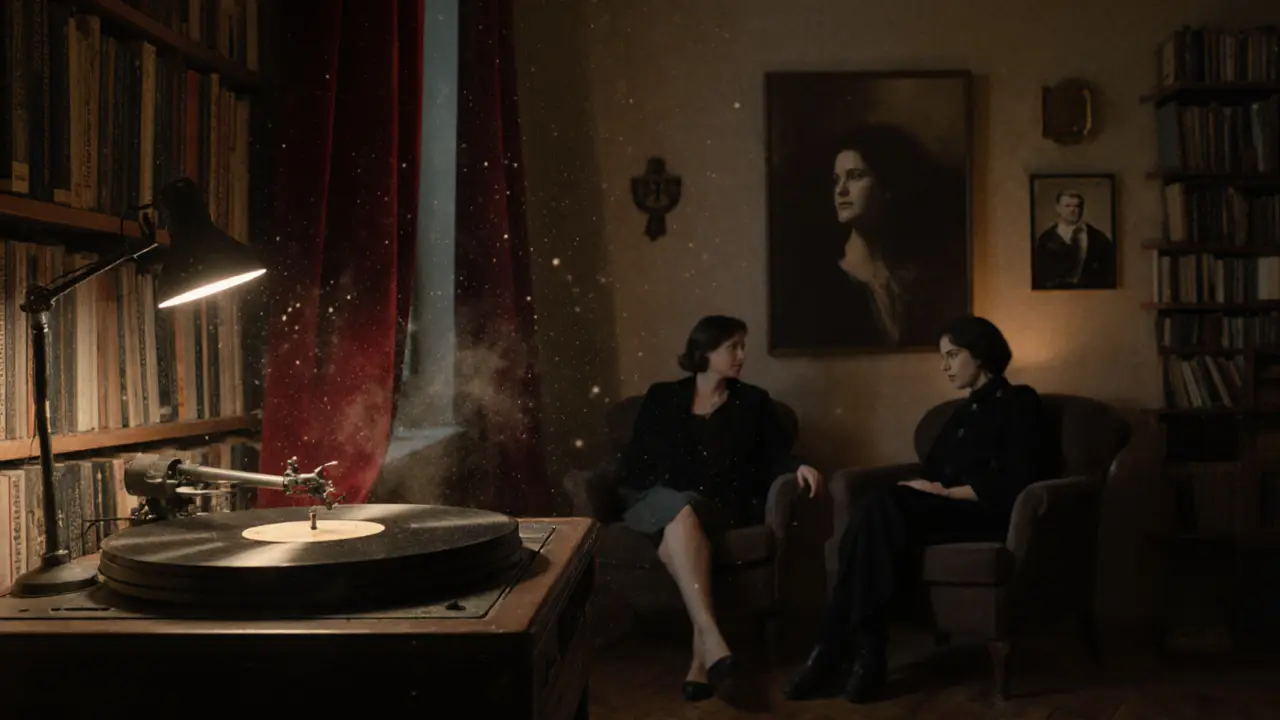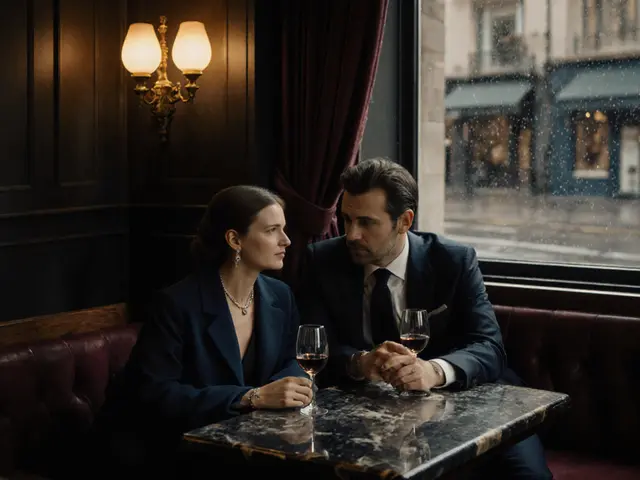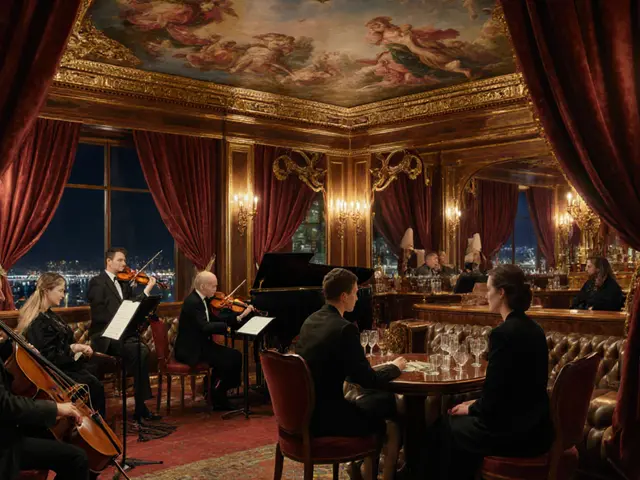Berlin doesn’t just show you its history-it lets you feel it. The Brandenburg Gate at sunrise, the quiet hum of the East Side Gallery, the scent of fresh pretzels drifting from a corner bakery near Museum Island. These aren’t just postcard moments. They’re living layers of a city that rewrote itself after war, division, and rebirth. And if you’re looking to experience Berlin with depth, elegance, and personal attention, you don’t need a tour group. You need a companion who knows the city’s soul-not just its landmarks.
Why a Sophisticated Companion Changes Everything
Most visitors to Berlin follow the same routes: Checkpoint Charlie, the Berlin Wall Memorial, the Reichstag Dome. They snap photos, buy souvenirs, and leave. But Berlin rewards those who go deeper. A sophisticated companion doesn’t just point out buildings-they explain the politics behind the graffiti, the silence in the Holocaust Memorial, the hidden jazz bars where musicians still play for change in their hats. They know which café in Mitte has the best kaffee und kuchen without the line, and which gallery opening is invitation-only.This isn’t about romance. It’s about access. It’s about someone who understands the rhythm of Berlin’s cultural pulse and can move with you through it-smoothly, respectfully, without drawing attention. Think of them as your personal curator for the city’s most meaningful moments.
The Art Scene: Beyond the Museums
Berlin has over 170 museums, but the real art lives in the spaces between them. A knowledgeable companion will take you to KW Institute for Contemporary Art in Mitte, where installations shift every six weeks and the staff remembers your name if you return. They’ll know the exact time the curator gives a private tour at Sammlung Boros, a bunker-turned-art-space in Kreuzberg that requires booking months in advance.They’ll skip the crowded Berlinische Galerie and instead guide you to Galerie Eigen + Art, where you might meet a young artist still wet with paint, discussing how the fall of the Wall changed their work. These aren’t tourist stops. They’re conversations.
Music, Memory, and Midnight in Berlin
Berlin’s music scene isn’t just clubs-it’s a cultural archive. A sophisticated companion knows the difference between the industrial thump of Berghain and the whispered jazz of Weserstrasse 14, where pianists play without microphones and the audience never claps until the last note fades. They’ll arrange a private listening session in a 1920s villa in Charlottenburg, where you’ll hear rare vinyl recordings of Lotte Lenya, the original singer of "Mack the Knife," played on a restored German turntable.They’ll also know when to leave the club. Not because it’s closing, but because the real story begins at 4 a.m.-when you walk through the Tiergarten, past the Soviet War Memorial, and find a single street vendor selling warm currywurst under a streetlamp. That’s when Berlin feels most alive.

History That Doesn’t Feel Like a Lecture
The Berlin Wall isn’t just a relic. It’s a scar that still bleeds meaning. A skilled companion won’t just show you the East Side Gallery. They’ll take you to Teufelsberg, a former NSA listening station built on a pile of WWII rubble, now covered in graffiti that changes every week. They’ll explain how the Allies monitored East German radio signals-and how locals used the same hills to smuggle letters out.At Topography of Terror, they won’t read from a brochure. They’ll tell you about the woman who worked in the Gestapo archives after the war, quietly saving files that later exposed war crimes. They’ll point to a single brick in the pavement-part of the original foundation of Himmler’s office-and say, "That’s where he signed the orders. Right here. No plaque. No crowd. Just the wind."
Food as Cultural Identity
Berlin’s food scene is messy, brilliant, and deeply personal. A sophisticated companion won’t take you to a Michelin-starred restaurant unless it’s Tim Raue, where the chef blends Vietnamese flavors with Berlin’s post-reunification identity. They’ll know the owner of Markthalle Neun and get you in during the Thursday Street Food Thursday, before the lines form.They’ll introduce you to a Turkish grandmother in Neukölln who makes the best döner in the city-no tourists allowed, just regulars who’ve been coming for 30 years. Or they’ll arrange a private dinner in a converted synagogue in Prenzlauer Berg, where the menu is based on recipes from Jewish families who returned after the Holocaust, reclaiming their culinary heritage one dish at a time.

When to Go, and How to Prepare
The best time to experience Berlin’s cultural depth is late September through November. The summer crowds are gone. The light is golden. The city feels quieter, more reflective. Museums aren’t packed. Galleries have room to breathe. Even the most exclusive events open their doors.Prepare simply: wear comfortable shoes, bring a notebook, and leave your phone on silent. The most powerful moments in Berlin don’t photograph well. They’re felt-in the hush of a cathedral after a choir sings Bach, in the way a stranger nods at you on the U-Bahn because you’re wearing the same vintage coat as their late mother.
What to Avoid
Don’t book a "luxury escort" service that markets itself as a "date" or "romantic experience." Berlin’s cultural scene is too rich, too complex, too honest for that. The right companion doesn’t sell fantasy. They offer clarity. They don’t pretend to be your lover. They become your guide to truth.Avoid the tourist traps in Alexanderplatz. Skip the overpriced boat tours on the Spree. Don’t let anyone rush you through the Jewish Museum. You need time. You need silence. You need someone who knows when to speak and when to just stand beside you.
Final Thoughts: Berlin Doesn’t Need a Guide. It Needs a Witness.
Berlin doesn’t want you to see its history. It wants you to carry it. A sophisticated companion doesn’t take you through the city. They help you walk alongside it-quietly, respectfully, fully present. They don’t answer your questions. They help you ask better ones.When you leave Berlin, you won’t remember the name of the gallery or the exact address of the jazz bar. You’ll remember how the light fell on the Brandenburg Gate at dusk. How the silence in the Holocaust Memorial felt heavier than any speech. How a stranger offered you a slice of apple strudel and said, "This is what we survived for."
Is it legal to hire a sophisticated companion in Berlin?
Yes, hiring a professional companion for cultural experiences is legal in Berlin as long as no sexual services are involved. Berlin has strict laws separating companionship from prostitution. Reputable services focus on conversation, cultural guidance, and personal enrichment-not physical intimacy. Always confirm the nature of the arrangement in writing before booking.
How much does a cultural companion in Berlin cost?
Prices vary based on experience and duration. A 4-hour cultural tour with a knowledgeable companion typically ranges from €250 to €500. For full-day excursions (8-10 hours), expect €600-€1,200. This includes access to private viewings, reservations, and personalized itineraries. The cost reflects expertise, not luxury branding.
Can I book a companion for a single day?
Absolutely. Many companions offer flexible, one-day packages tailored to your interests-whether it’s art, music, history, or food. Some even specialize in niche areas like Bauhaus architecture or post-war literature. You don’t need to commit to multiple days. A single day with the right person can transform your entire experience of Berlin.
Do companions speak languages other than German?
Most professional companions in Berlin are fluent in English, French, or Spanish, and many speak two or more languages. Some specialize in serving international clients and have backgrounds in museum curation, academia, or international relations. Always ask about language proficiency before booking.
How do I find a reputable companion service in Berlin?
Look for services with transparent profiles, client testimonials focused on cultural experiences, and clear boundaries around services offered. Avoid platforms that use suggestive imagery or vague language. Reputable providers list their companions’ backgrounds-such as art history degrees, museum work, or language certifications. Check reviews on independent sites like Trustpilot or local expat forums.




